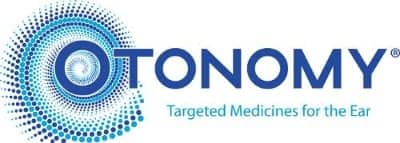Auris Medical Holding Ltd (NASDAQ: EARS), a clinical-stage company dedicated to developing therapeutics that address unmet medical needs in neurotology and central nervous system disorders, announced that the United States Patent and Trademark Office (USPTO) has issued a notice of allowance for its patent application entitled “Pharmaceutical Composition Comprising Betahistine” (US Patent Application No. 15/887,388). In addition, the Company received an “Intention to Grant” notice from the European Patent Office (EPO) for its related patent application entitled “Intranasal Composition Comprising Betahistine” (European Patent Application 18 703 749.4). Upon issuance, the patents are expected to expire no earlier than February 2038 and will provide key intellectual property protection for the Company’s intranasal betahistine program.
“We are very pleased to have achieved this major milestone in the protection of our intellectual property around the intranasal betahistine program,” said Thomas Meyer, Auris Medical’s Founder, Chairman, and CEO. “The intranasal delivery route allows for a surprisingly strong increase in betahistine concentration in the bloodstream compared to the common oral route, which is expected to result in superior therapeutic benefits. We look forward to developing this innovation further in order to help patients who are suffering from vertigo or antipsychotic-induced weight gain, among other potential medical conditions.”
According to Auris’ announcement, the allowed claims cover composition of matter and methods of use for formulations of betahistine dihydrochloride for intranasal delivery. The communications from the USPTO and EPO conclude substantive examination of the patent applications, which are now expected to issue as patents once the issue fees are paid and the patent offices conclude their respective administrative procedures. Auris Medical has also filed corresponding patent applications that will allow the Company to seek similar patent protection in other key markets throughout the world.
About Betahistine
Betahistine is a small molecule structural analog of histamine, which acts as an agonist at the H1 and as an antagonist at the H3histamine receptors. Unlike histamine, it is said to cross the blood-brain-barrier. It is known to enhance inner ear and cerebral blood flow, increase histamine turnover and enhance histamine release in the brain, increase release of acetylcholine, dopamine, and norepinephrine in the brain, and to result in general brain arousal. Betahistine for oral administration is approved in about 115 countries, with the US being a notable exception, for the treatment of vertigo and Meniere’s disease. The compound reportedly has “a very good safety profile,” according to Auris, yet it is also known that its clinical utility is held back by “poor bioavailability.” Intranasal administration of betahistine has reportedly been shown to result in 5 to 29 times higher bioavailability, according to the company.
Source: Auris Medical




